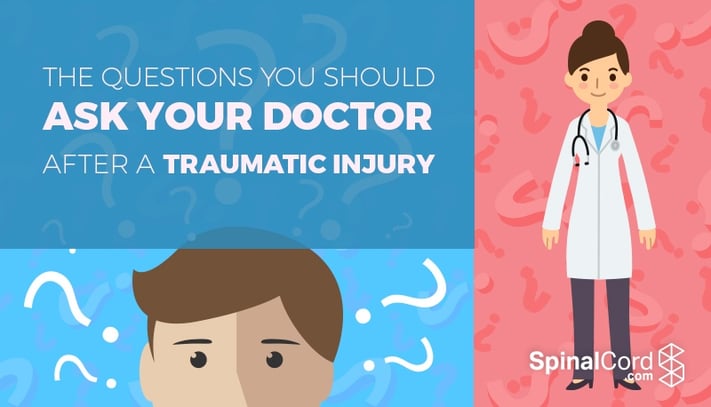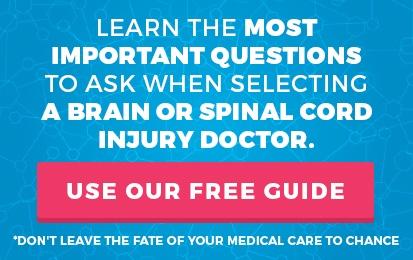6 Types of Questions You Should Ask Your Doctor After a Traumatic Injury

A traumatic injury is a fundamentally different type of medical experience from common doctor visits. Illnesses often slowly materialize, allowing you time to adjust to your symptoms, use Dr. Google to self-diagnose, and develop a treatment plan even before you see your doctor. This approach comes with its own problems, of course, but a traumatic injury, by its very (unexpected) nature, leaves you armed with less information, fewer opportunities to research and plan, and almost no time to compare medical providers.
Don't allow fear after a traumatic brain or spinal cord injury get in the way of good medical care. It's not rude to pepper your doctor with questions. In fact, it may save your life. With more than a million medical errors each year, research consistently shows that people who question their doctors receive higher quality care.
Feel free to ask about anything that's important to you; no topic should be off limits, and you shouldn't feel ashamed of addressing intimate topics such as sexuality or bathroom functions. The following questions are merely a starting point, not an exhaustive list. For more details about what to ask after a traumatic injury and when to ask it, check out the link to download our eBook below.
1. Assessing the Doctor's Skill
Traumatic injuries require highly specialized skill to treat, so you should not select the first doctor you find or the first one listed as a recommended provider with your insurance plan. Weeding out bad doctors is vital during your first tentative steps toward recovery. Ask about your doctor’s medial specialty, years of experience, and history of working with patients like you.
2. Seeking Additional Support
Few trauma survivors successfully treat their injuries with the assistance of just one doctor. Often, they need the help of an entire facility. Spinal Cord Injury Model Systems provide the most comprehensive and cutting-edge care for spinal cord injury survivors. If your doctor recommends you transfer to a new facility or seek assistance from an additional provider, ask about the facility to which you were referred, as well as whether your doctor will continue providing care after you transition.
3. Preliminary Prognosis
Traumatic injuries are unpredictable. When the swelling goes down, your prognosis might be radically different. You could also be among the lucky few who experience a sudden, unexplained reversal of your symptoms. Any prognoses your doctor offers are only educated guesses. They are neither guarantees nor condemnations. Knowing what you're in for, though, can help you prepare. Ask about the prognosis for patients with injuries similar to your own, as well as the best and worst-case scenarios.
4. Data and Statistics
It's easy for your doctor to tell you that surgery is usually “successful.” But what does that mean? Ask your doctor for specific, detailed information about common outcomes, what percentage of patients recover, and how many patients have undergone the procedure your provider suggests.
5. Before a Medical Procedure
When your doctor recommends a medical procedure, whether a surgery or test, it's easy to reflexively consent. After all, he or she is the expert. Doctors are human, though, and humans make errors. Your case is unique, and you deserve as much information as possible. A side effect that was tolerable for one person—such as loss of sexual function—might feel unbearable to you. Ask what you can expect, how long the recovery might be, and which side effects are most common.
6. Supporting Your Doctor
What you put into your body, how you treat it, and even your mental health can greatly affect your prognosis. Ask your doctor whether lifestyle changes, supplemental treatments, and other forms of care can speed your recovery. Consider also asking whether there are any activities, medications, or lifestyle choices you should avoid.
For the full list of questions to ask your doctor after a traumatic injury, along with a checklist to bring with you to your next appointment, download the guide below.
Stay Updated on Advancements On Traumatic Brain &
Spinal Cord Injuries
About the Author





